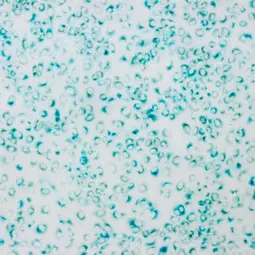Translational Control and Metabolism
- Functional and Structural Genomics

Dr. Fabricio Loayza-Puch
Group Leader
Our laboratory uses a combination of innovative genomics tools, molecular biology, animal models, and bioinformatics to uncover metabolic limitations in cancer.

Our Research
The demand for building blocks in cancer cells differs greatly from the one of a normal cell. In order to divide, a cell must duplicate its protein content, a process that requires large amounts of energy and amino acid resources. To cope with a higher demand of energy and building blocks, cancer cells rewire profoundly their metabolic networks. However, the metabolic changes a tumor undergoes to adapt to deregulated growth might expose vulnerabilities that can be exploited for therapy. To exploit amino acid vulnerabilities for cancer therapy, one must first identify which amino acid is the most restrictive to the tumor. Our laboratory uses a combination of innovative genomics tools, molecular biology, animal models, and bioinformatics to uncover these metabolic limitations in cancer. Recently, we developed a novel approach to detect restrictive amino acids in cells and tumors. The rationale of our approach is based on differential ribosome codon reading (diricore); we make use of ribosome profiling to detect ribosomes stalled at specific codons. The accumulation of ribosomes at a particular codon indicates that the corresponding aminoacylated tRNA might be limiting and suggests a deficiency of the amino acid. The diricore approach can be used as a platform to sense these amino acid deficiencies in cells and tumors and to expose the weaknesses of tumor's metabolic remodeling.
Future Outlook
RNA functions not only as a carrier of genetic information, but also as a catalyst and guide for the processing or regulation of other RNA molecules. Using a combination of innovative sequencing techniques and functional genomics, our group aims to understand the role of mRNA translation in cancer and metastasis. We explore the global impact of RNA modifications and the role of non-coding RNAs on mRNA translation. At the same time, we use the global positional information of ribosomes as a readout to infer metabolic deficiencies in tumors, such limitations have the potential to be exploited as novel cancer therapies.
Team
- Show profile

Dr. Fabricio Loayza-Puch
Group Leader
- Show profile

Rossella Del Pizzo
PhD Student
- Show profile
Andres Elia
Postdoc
- Show profile
Lilli-Joelle Kohler
Trainee
-
Karolin Mayer
- Show profile

Giuliana Palazzo
PhD Student
- Show profile

Zhiwei Tang
PhD Student
- Show profile

Yuchong Yu
PhD Student
Selected Publications
Jiang X, Baig AH, Palazzo G, Del Pizzo R, Bortecen T, Groessl S, Zaal EA, Amaya Ramirez CC, Kowar A, Aviles-Huerta D, Berkers CR, Palm W, Tschaharganeh D, Krijgsveld J, Loayza-Puch F.
Tumour-specific proline vulnerability uncovered by differential ribosome codon reading.
Loayza-Puch F*, Rooijers K*, Buil L, Zijlstra J, Oude Vrielink JAF, Lopes R, Ugalde AP, van Breugel P, Bex A, Hofland I, Wesseling I, van Tellingen O, Agami R
Ribosome profiling reveals features of normal and disease-associated mitochondrial translation.
Rooijers K*, Loayza-Puch F*, Nijtmans L, Agami R
The poly(a)-binding protein nuclear 1 suppresses alternative cleavage and polyadenylation sites.
Jenal M*, Elkon R*, Loayza-Puch F*, van Haaften G, Kuhn U, Menzies FM, Vrielink JA, Bos AJ, Drost J, Rooijers K et al
Get in touch with us

